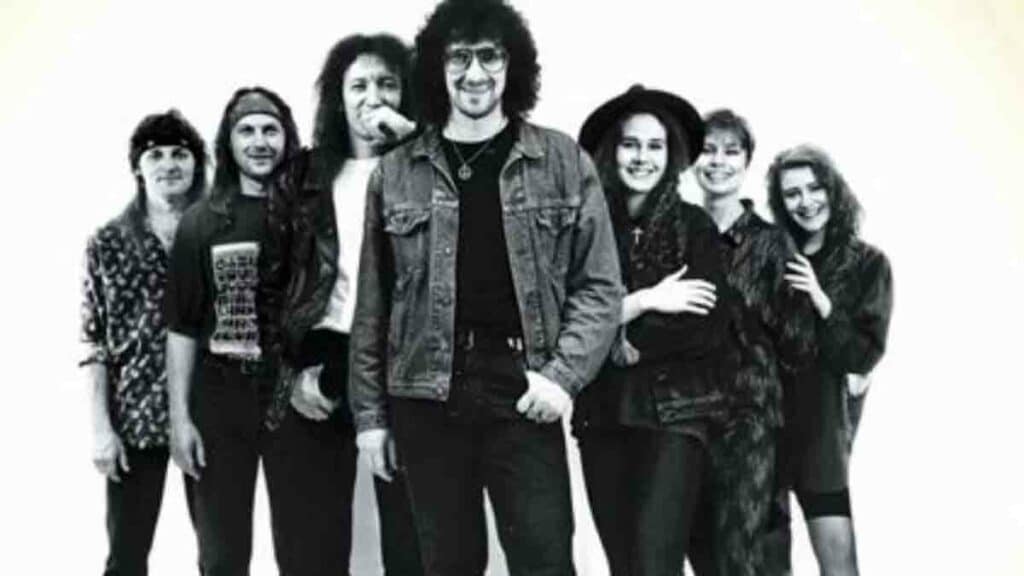A unique phenomenon on the Eastern European stage is a group called the Blues League. In 2019, this honored team celebrates its XNUMXth anniversary.
Entirely and completely its history is connected with the work, life of one of the best vocalists of the country of the Soviets and Russia - Nikolai Arutyunov.
Blues ambassadors in a non-blues country
It's not that our people don't like the blues. But even in the list of popular genres, it hardly occupies a high position. Therefore, domestic musicians who decide to go on stage and record material in this style or related to it are doomed to an easy misunderstanding of the public and difficulties in their careers.
Nevertheless, there are enthusiasts who try to convey their understanding of blues aesthetics to the listener. Arutyunov can be called one of them with full confidence.
Nikolai was puzzled by the creation of a blues group in the USSR back in the mid-seventies, but not everything was so simple. Only at the end of the decade did his dream come true.
Why didn't it work right away? As Nikolai himself identified the problem: almost all of his familiar musicians dreamed of becoming the Beatles, and he himself dreamed of becoming a Rolling Stone. Kolya's first rhythm and blues experience ended rather quickly. The second attempt was made in 79, and it just succeeded.
In addition to the "generator of ideas" Arutyunov, the first line-up included such comrades as guitarist Sergei Voronov (the future creator of the cult CrossroadZ), bassist Andrei Sverchevsky and drummer Andrei Yarin.
The assembly hall in one of the oil and gas research institutes became a rehearsal base for young people. We agreed that for the opportunity to play music there, the group will pay with concerts on the "red dates" in the calendar. That's what they decided on.

Search for the original composition of the Blues League
The zeal and efforts of some members of the group did not last long. If the drummer had the least complaints, then the guitarist and bass player frankly chimed in.
In addition, at one of the concerts for the employees of the research institute, there was a scandal when one of the tipsy spectators pushed himself onto the stage and uttered the historical phrase: “What are you playing Bach for us here?”.
Soon the team left Sverchevsky, and a little later, and Voronov. Their replacement was found in the form of Mikhail Savkin and Boris Bulkin, several bassists changed at once.
When the moment came to part with the hospitable research institute, the band's repertoire included not only blues covers, but also some of their creative baggage from the Beatles, ELO, Uriah Heep and other popular bands. However, the audience was eager to hear songs in their native language, which the guys did not have and were only supposed to.
In 81, drummer Alexei Kotov came to the company to the Soviet blues players with his own drum set. He also, like Nikolai, had great respect for the music of the Rolling Stones.
In 1982, the guys were attached to the recreation center of the Kalibr plant and for four years they successfully worked under the auspices of the Coliseum Youth Club of Contemporary Music.

This is how the group's style and technique were forged, the repertoire was filled with versatile, but still bluesy material. With the name, too, had to work hard, which only options were not offered. But they settled on the "Major League of Blues" (over time, the adjective disappeared in the title).
In 1986, the debut magnetic album, which coincided in name with the name of the group. He recorded a trio consisting of Arutyunov, Savkin and Kotov. Misha, by the way, took over all the guitar parts.
Formation of the Blues League team
A year later, the "League" acquires the status of a professional group and changes its composition. Sergei Voronov returns to her bosom, and he brings with him bassist Alexander Solich and drummer Sergei Grigoryan, who is almost immediately replaced by Yuri Rogozhin from Dynamics. In addition, saxophonist Garik Eloyan, who combined the functions of a keyboardist, passes to them from Yuri Antonov.
With this composition, the group began touring, including international. Along with English-language cover versions, the ensemble's program began to appear their good songs in Russian: "Your Daughter", "Untie My Hands", "July Blues", etc.
In 89, the Blues League participated in several competitions (albeit without much resonance, but still): Steps to Parnassus, Intershans, Formula 9. There was no one left from the previous composition except Arutyunov.
At that time, Nikolai had already worked with guitarist Vladimir Dolgov, bassist Viktor Telnov, and drummer Andrei Shatunovsky. At the same time, a vinyl EP with four songs was released on Melodiya.
"Dashing" Nineties Blues League
In the next decade, the League of Blues unfolded to its full potential. She is becoming more and more famous in the country. And invariably, her composition changes at the same time. How much has passed through a group of different musicians - you can get confused!
Remarkably, during this period, Arutyunov began to invite girls to back vocals. Among them was the singer Masha Katz, who in 94, under the pseudonym Judith, was the first from our country to participate in Eurovision.
In 1991, the debut LP LB was released under the title "Long Live Rhythm and Blues!", And the next year - a double concert from the "Blues in Russia" festival.
In 1994, the group was invited to the Montreux Jazz Festival.
Already in 1995, the League of Blues celebrated its 15th anniversary with the release of an interesting disc “Has it really been 15 years” - so to speak, in the form of a report on the work done. The playlist includes songs of the ensemble from different years.
In early 1996, the band jammed with world music legend BB King, and at the end of the show they went to BB King's House of Blues together.
In 97, the ensemble recorded fresh material for a disc, but, unfortunately, it was not released. In 1998, a crisis broke out. Significantly reduced the number of tours.
Not wanting to succumb to difficult circumstances, Nikolai Arutyunov experiments: together with Dmitry Chetvergov, the project "Arutyunov's Thursday" is being created.
Later, in the 60s, a couple more Harutyunov bands appeared, such as The Booze Band, Funky Soul, and Nikolai himself tried his hand at the Voice + XNUMX television competition and reached the final.



